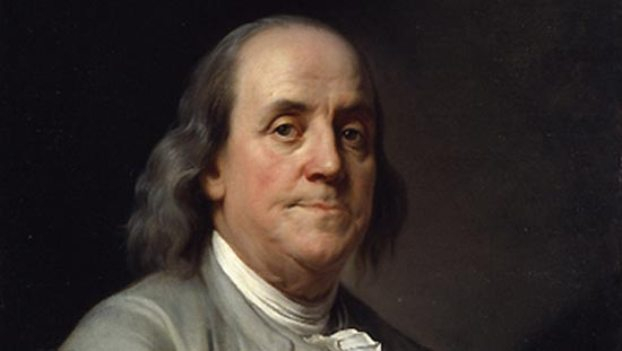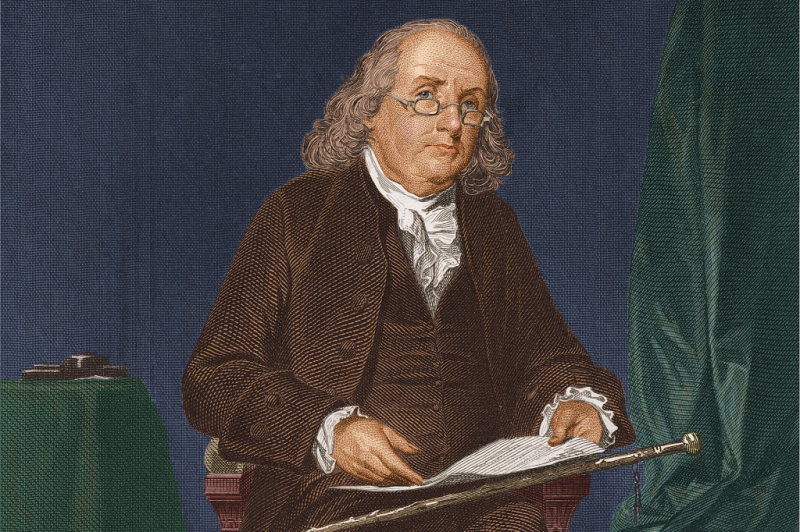Benjamin Franklin

Benjamin Franklin (1706-1790) was a scientist, ambassador, philosopher, statesman, writer, and businessman, as well as a well-known free thinker and wit. Franklin is known as "America's Renaissance Man," and he was instrumental in building a united American identity during the American Revolution.
Benjamin Franklin was born on January 17, 1706, to a big and impoverished family. His father had 17 offspring from two women. Benjamin grew up in his family's candle-making business and his brother's printing firm. Benjamin would study and learn about a wide range of things, from Sophocles to modern science, whenever he could. While his coworkers enjoyed a relaxing lunch break, Benjamin Franklin would pour through books from the bookstore while snacking on raisins.
He also began writing pieces for the 'New England Courant' under a pseudonym at a young age; Franklin wrote under pseudonyms throughout his life. After a few were published, he confessed to his father that he had written them. His father, rather than being pleased, thrashed him for his impudence. As a result, at the age of 17, Benjamin quit the family company and traveled to Philadelphia.
Benjamin's reputation as a caustic man of letters blossomed in Philadelphia. His writings were both amusing and satirical, and his ability to bring down prominent characters piqued the interest of Pennsylvania governor William Keith. Fearing Benjamin's humor, William Keith gave him a job in England with all costs paid. Benjamin accepted the opportunity, but while in England, the governor abandoned Franklin, leaving him penniless.
Benjamin Franklin was constantly put in hard situations, yet his natural resourcefulness and drive always triumphed over adversity. In London, Benjamin got work as a printer. He was nicknamed the "Water American" because he preferred water to the standard six pints of alcohol each day. Franklin observed that "a pennyworth of bread contains more nourishment than a quart of beer."
Mr. Denham, a Quaker merchant, offered him a place in Philadelphia in 1726. Franklin agreed and sailed back to the United States.
In the tax issue, Franklin was appointed as an ambassador to England. He had conferences with political leaders for five years while maintaining his scientific research and musical studies.
Later, Franklin was instrumental in alerting the British authorities to the hazards of taxing the American colonies. Franklin was essential in persuading the British Parliament to repeal the despised Stamp Act in a battle of wills. This reversal, however, proved to be brief. When fresh levies were imposed, Franklin declared himself a supporter of the fledgling American independence cause.
In 1775, he returned to a war-torn America. He was one of five members chosen to draft the American Declaration of Independence, which was written by Thomas Jefferson.
Franklin was appointed as America's ambassador to France, where he fought hard to obtain French support for America's war effort. Franklin was well admired in French society during his lifetime, and his image was displayed in many homes.
The newly created US government begged Franklin, then 75, to be America's representative in negotiating a peace treaty with Great Britain, which was signed in 1783.
He was eventually replaced as French ambassador by Thomas Jefferson, who said of his immense capacity, "I succeed him; no one can replace him."


























